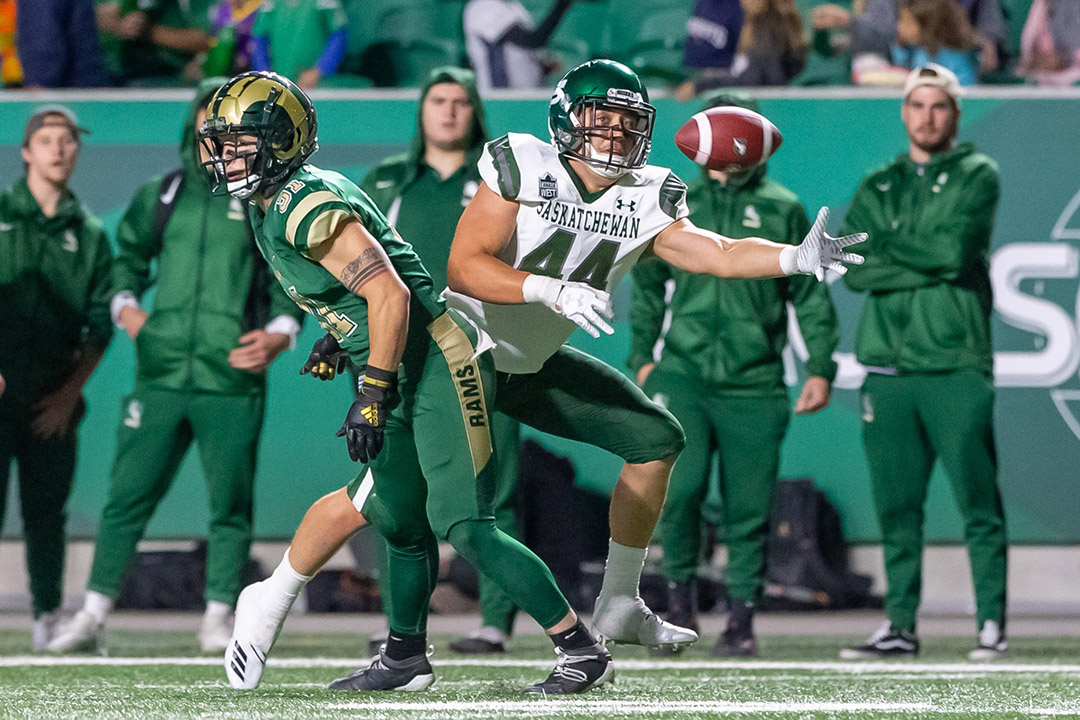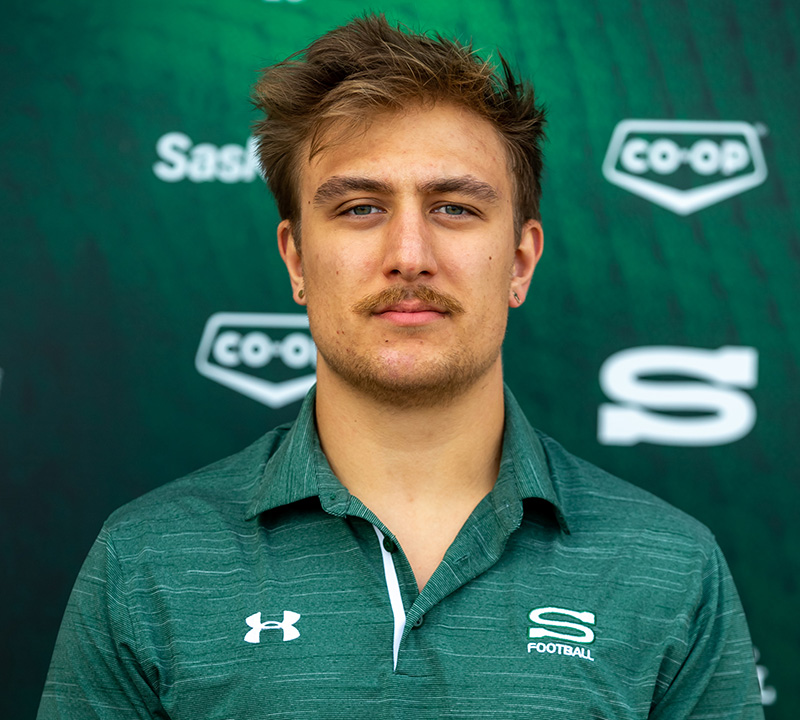
Anthropology was perfect fit for Huskie football player
When Isaac Rogers began his studies in 2016 at the University of Saskatchewan (USask), he enrolled in a “little bit of everything.”
By Shannon BoklaschukRogers’ academic path became clearer, however, after taking an anthropology course taught by Dr. Pamela Downe (PhD), a professor in the Department of Archaeology and Anthropology in USask’s College of Arts and Science. The course inspired him to undertake several years of studies in the department, culminating in the receipt of his Bachelor of Arts (honours) degree in anthropology during USask’s 2021 Spring Convocation.
“I really appreciated the size of the department. It allowed me to get to know the professors, as well as my classmates, really well,” he said.
Rogers, who is from Prince George, B.C., skillfully juggled his academic endeavours with his athletic pursuits as a Huskie athlete, playing both running back and fullback with the USask football team throughout his five years as a student. He was an Academic All-Canadian, a U Sports designation used to describe exceptional student-athletes who achieve an academic standing of 80 per cent or higher while taking a full course load and playing on a university varsity team.

“I really enjoyed being around the team, whatever it was that we were doing,” Rogers said. “Game days were great, especially at home—such as the homecoming-themed games. Playing in front of the large crowds was a bonus and they were always fun. I have really enjoyed just being around the team, training or travelling. Building relationships with the guys is honestly the best part.”
Due to the COVID-19 pandemic, Rogers’ final season of competition with the Huskies was cancelled. However, his team was able to do “some very limited training,” he said, with mandatory masking and limits on the number of people allowed on the field.
“It was harder; we were split up differently than normal and we never knew when we would be shut down,” he said. “We played it by ear week-to-week. Usually, by the beginning of the season, you know the names of the majority of your teammates. But, this year, I really did not get to know the new guys that were on defence because of how the groups were split.”
Despite the COVID-19 safety precautions—which also resulted in most USask courses being taught remotely in 2020-21—Rogers looks back at his undergraduate experience with fondness. He said USask does a great job of fostering a community “that is conducive for relationship building,” and he has built relationships “in every sphere” at the university, whether through sport or classes.
During the past academic year, Rogers completed multiple senior-level courses and authored an honours essay that focused on changes in livelihood during the 20th century for Indigenous people in northern Alberta. His essay was based on interviews with Elders of the Bigstone Cree Nation, conducted by Indigenous researchers in the Wabasca-Desmarais (Alberta) area in 1968 and 1976. The project was supervised by Dr. Clinton Westman (PhD), head of the Department of Archaeology and Anthropology.
“The interviews discuss spirituality, subsistence, treaties and everyday life in the area. I chose to focus on the treaties and subsistence methods and how they interacted throughout the 20th century,” Rogers said.
“I chose this topic because of a class I had with Professor Westman that focused on Indigenous place-making. The course materials were really interesting. I found it easy to work with Professor Westman in that course, and I knew that he would make a good supervisor for the honours essay. I was wanting to do the essay since my second year, and his materials were the right fit.”
Outside of his academic and athletic pursuits, Rogers enjoyed volunteering at the Bridge City Bicycle Co-op (BCBC). The volunteer-run, non-profit co-operative offers a drop-in workspace, tools and supplies, as well as bicycle maintenance education.
“Donated bikes would get fixed up and would be provided to youth that did not have one,” he said. “I recommend that if you have a bike that you are considering throwing out, donate it to the BCBC. They will fix it up and someone in need will get a bike.”
With his newly minted degree, Rogers is now looking ahead to the future. He will attend law school to study Indigenous law “as well as new rehabilitative court systems for individuals who would benefit from restorative justice.”
He also has some advice for students who are just beginning their studies at USask.
“It is important to communicate with the people around you. There are a lot of people having a similar experience, doing the same things,” he said. “Get to know the people in your department, whether they are students or staff; it is really beneficial in the long run.”

